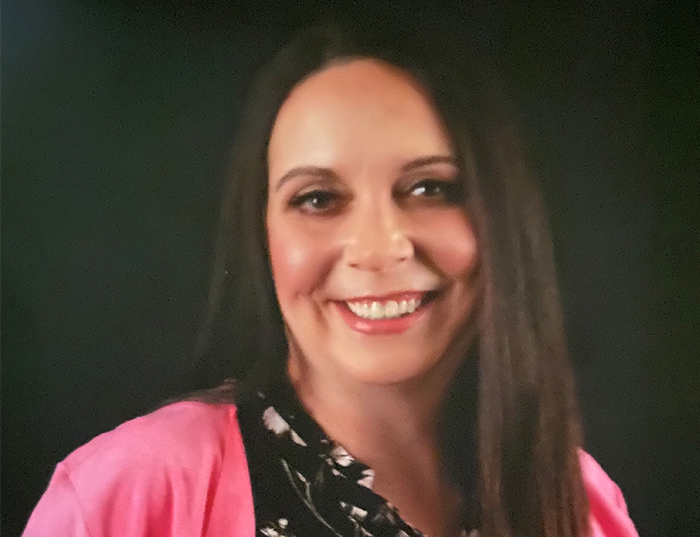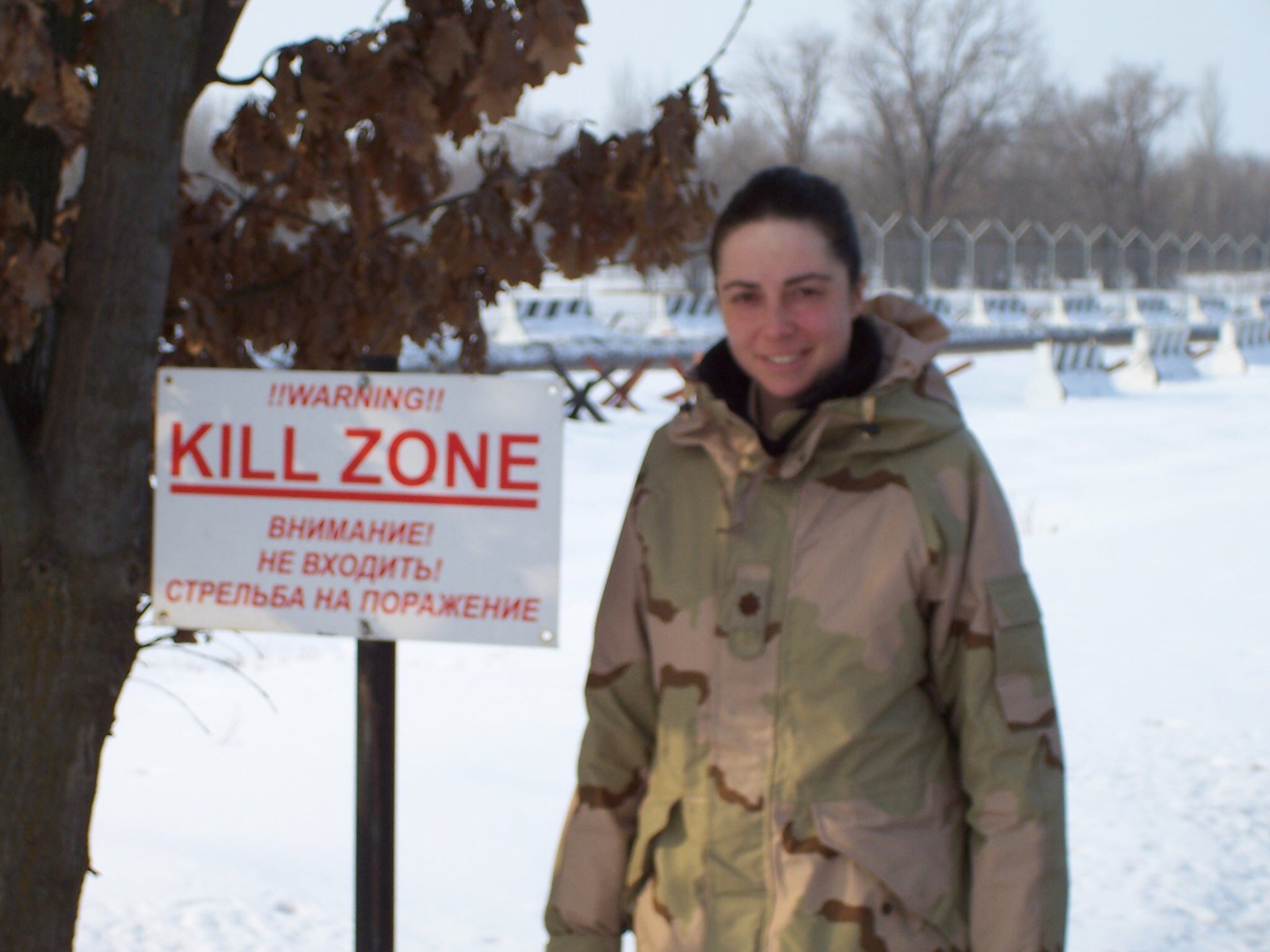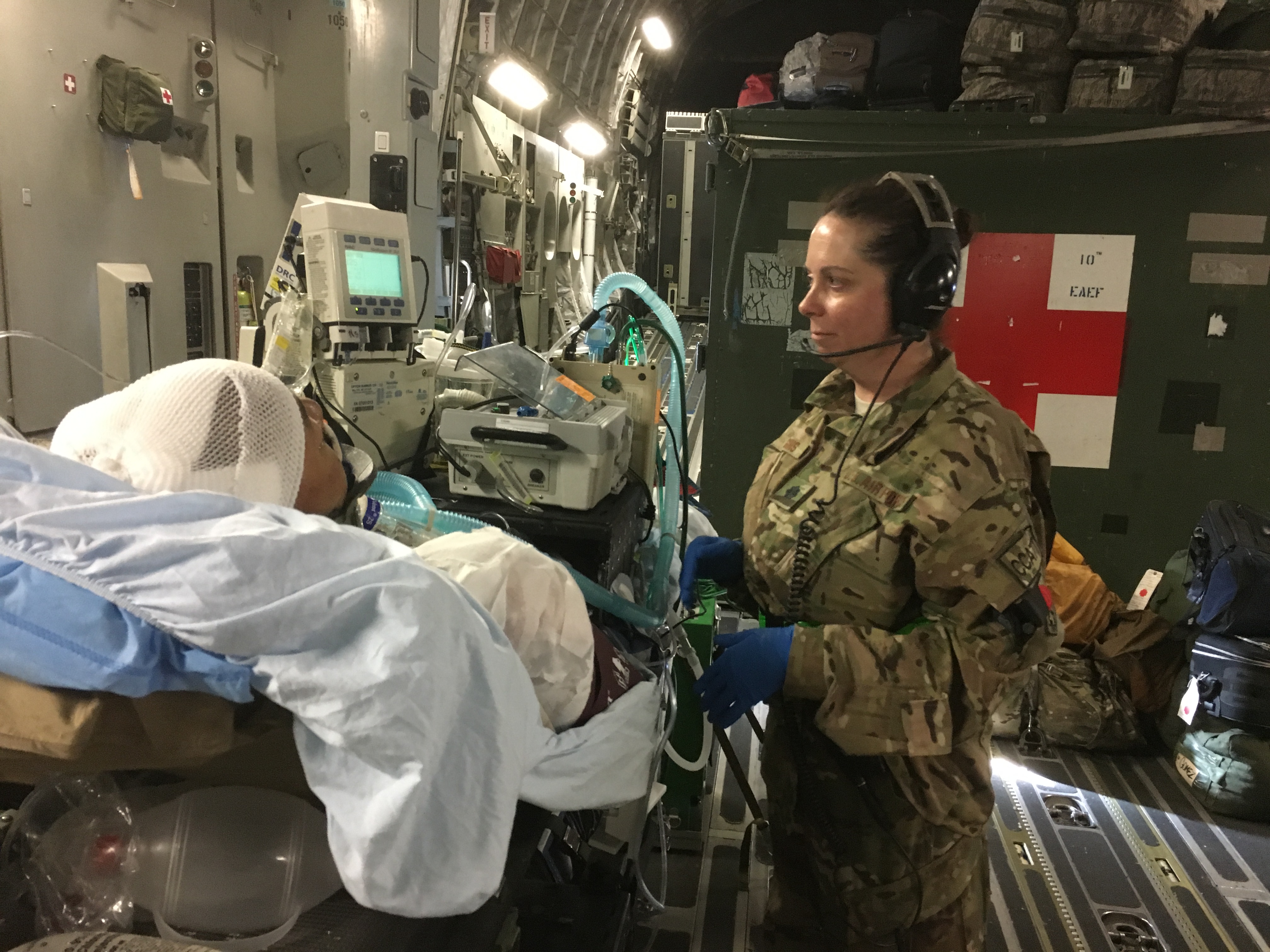 Laura Wiggins, DNP, MSN, CRNA, Lt. Col. (retired), USAF, is one of the OB Clinical Coordinators for the Nurse Anesthesia Program and an Assistant Professor at the University of Pittsburgh School of Nursing. She primarily works at UPMC Magee-Womens Hospital as a CRNA in the anesthesiology department. For National Veterans and Military Families Month, we asked Laura to share her experiences as a veteran and professional in anesthesiology.
Laura Wiggins, DNP, MSN, CRNA, Lt. Col. (retired), USAF, is one of the OB Clinical Coordinators for the Nurse Anesthesia Program and an Assistant Professor at the University of Pittsburgh School of Nursing. She primarily works at UPMC Magee-Womens Hospital as a CRNA in the anesthesiology department. For National Veterans and Military Families Month, we asked Laura to share her experiences as a veteran and professional in anesthesiology.
Please share some details about your military service and experience. In which branch of the armed forces did you serve? Where were you stationed?
I served active duty in the United States Air Force (USAF) from 1990-2008, at which time I transitioned into the USAF Reserves. I was stationed at Andrew’s Air Force Base (AFB), Maryland; Lackland AFB, Texas; Keesler AFB, Mississippi (during Katrina); and RAF Lakenheath air base in the United Kingdom.
I deployed as a CRNA/Critical Care Air Transport Team (CCATT) in support of OPERATION FREEDOM’S SENTINEL, OPERATION RESOLUTE SUPPORT, OPERATION ENDURING FREEDOM, and OPERATION INHERENT RESOLVE. These deployments included Qatar, Kuwait, UAE, Yemen, Sudan, Syria, Iraq, Kyrgyzstan, and Afghanistan missions.
I served as a CRNA, a CCAT Member, and as the Chief Nurse Executive of the 911th Aeromedical Staging Squadron in Pittsburgh, PA.
What motivated you to join the military, and how did your service shape your values and perspective on life?
My family was always very patriotic with multiple members who had served during WWII, Korea, and Vietnam. It was just something that I was destined to do. Military service taught me that there is nothing more important than integrity and character. These things can be lost in the “fog of war,” and it is crucial to understand their importance.
 What have you enjoyed most about serving in the military? Can you share some of your most memorable experiences or moments from your time in the military, and how they have impacted your life?
What have you enjoyed most about serving in the military? Can you share some of your most memorable experiences or moments from your time in the military, and how they have impacted your life?
The thing that I enjoyed the most about my military service was bringing heroes home to their families. I was humbled and honored to take care of so many injured service members! Bringing them home to their families was incredibly rewarding and uplifting! Seeing military members re-unite with their families is the one thing that consistently evokes emotional responses for me.
There is something truly special about the people who serve beside you in the military. Bonds are formed. Everyone brings back some memory, even after years have gone by. Often, you don’t realize the impact they have had on you or that you have had on them, until meeting up much later in life. The stories and camaraderie are incredible! That is the one thing that I miss the most…the people.
How has your military service as a Veteran influenced your approach to anesthesia practice? What skills or values from your military experience do you find most applicable in the field of anesthesiology?
Leadership. My military service has helped me be a better advocate for my patients and my colleagues. Leadership is the one skill that has allowed me to motivate myself, motivate others, set direction, make positive changes, increase self-awareness, build team confidence, and to draw strength from adversity. It helps me to improve myself daily and help others. It is very relevant in anesthesiology, as it helps me to self-reflect, be introspective, and make improvements that have a big impact.
How do you think your military background has prepared you for the high-pressure environment often associated with surgical procedures and anesthesia administration? Can you provide an example from your experience where your military training helped you handle a challenging situation in the operating room?
Military service prepares you for high stress and high-pressure environments in so many ways! It cultivates attention to detail and situational awareness. Often it gives you an understanding and insight into human empathy. There are many situations with production pressure in the operating room that can cause risk and safety issues. It is important to speak up and mitigate these intense situations in a professional manner. These situations happen everyday with crisis management or codes. Closed-loop communication and team building help to navigate all these intense situations.
 Many Veterans possess strong leadership and teamwork skills. How have you applied your leadership abilities in your role as a CRNA, especially in the context of working within a medical team during surgeries? Can you share a specific instance where your leadership skills were instrumental in ensuring the well-being of a patient or the smooth operation of the operating room?
Many Veterans possess strong leadership and teamwork skills. How have you applied your leadership abilities in your role as a CRNA, especially in the context of working within a medical team during surgeries? Can you share a specific instance where your leadership skills were instrumental in ensuring the well-being of a patient or the smooth operation of the operating room?
As one of the OB Clinical Coordinators for the University of Pittsburgh Nurse Anesthesia Program, I mentor the students and build their confidence in their anesthesia skills, techniques, and training. With the help of colleagues, I have created courses at WISER that help build on team dynamics and foster communication skills. The OB Critical Scenario Course is one of these courses. It helps physician residents, SRNAs, CRNAs, anesthesia technicians, and physician anesthesiologists build their skills and team dynamics while managing crisis situations. After teaching this course (just this week), I had a situation in the OR where the patient had an anaphylactic reaction. It was quickly recognized! The communication between the anesthesia team, surgical team, and intensivists was instrumental in the patient’s survival! The patient did end up in the ICU but was very appreciative of his care and eventually discharged home.
Military Veterans often possess a strong sense of discipline and commitment. How do you maintain a high level of discipline in your practice as a CRNA? Can you discuss a specific instance where your dedication to your work and attention to detail made a significant difference in a patient's outcome or recovery process?
As a military Veteran, I put others first. I am always early to meetings and commitments out of respect for the individuals that worked so hard to put the event together. I am willing to help in whatever way I can to support others. During one of my CCATT missions, I noticed that the patient’s blood pressure was dropping. We were being pressured to take off quickly, as we didn’t have enough fuel to get to our destination. Instead of securing myself in my seat, I jumped up and secured myself to the patient. I administered whole blood, as this is what he needed, and started a vasoactive medication as the blood was replaced. I then consulted the surgeon who needed to replace a chest tube that wasn’t functioning correctly and was becoming problematic at altitude. This allowed us to properly ventilate the patient and he survived!
How do you think society can better support and appreciate the contributions of Veterans, especially during National Veterans and Military Families Month?
If you have a military member that works for you (reservist), and they have been deployed, please don’t ask them to return early to work immediately once they are home! They need that re-integration time with their families! They weren’t on “vacation”! There are things that they need to process mentally. They must get their own affairs in order that have probably been neglected for months! There are relationships that they need to rebuild to function properly again in society. Many of them have experienced and seen things that you can’t even fathom! I mention this for better support, as when I returned from two different deployments, I was asked to return early to my civilian job. I was trying to be a good employee, so I did return early. Years later I realize how unhealthy that situation was and how important it is to take that time to re-integrate to home and family! They might not want to talk about their experiences, but if they do… just listen!
Looking back on your military service, what are you most proud of, and is there anything you wish civilians better understood about the experiences of Veterans?
I am proud of my military service and most proud of every single one of my troops that I was able to mentor and influence. They consistently shine bright!
I wish civilians better understood the difficulty of accessing VA care. Veterans have wounds that you might not be able to see. They are also the most financially exploited group of individuals due to being targeted for their disability payments; thus, many of them are homeless. Have some compassion and understanding in what they have endured for our country and continue to endure at home.
